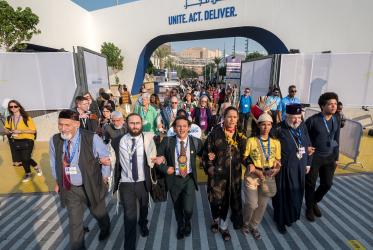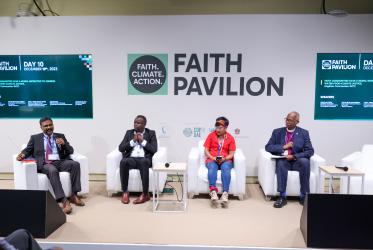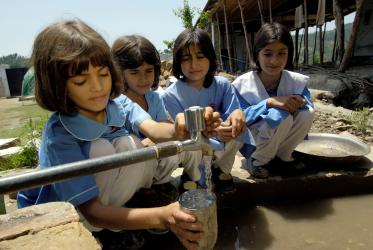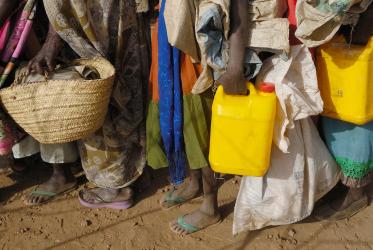Displaying 1 - 20 of 86
Thirsting for peace: Gaza's water woes in the midst of war
31 January 2024
“Faith Community is a Blue Community” - WCC official side event at the UN Water Conference
22 March 2023
UN Church Center, 777 United Nations Plaza, New York and online via Zoom
Seven Weeks for Water 2023 takes global approach
22 February 2023
2022 Social Forum: Water for human rights and sustainable development
03 - 04 November 2022
Palais des Nations in Geneva, Switzerland
Water and justice at the WCC 11th Assembly
20 July 2022










